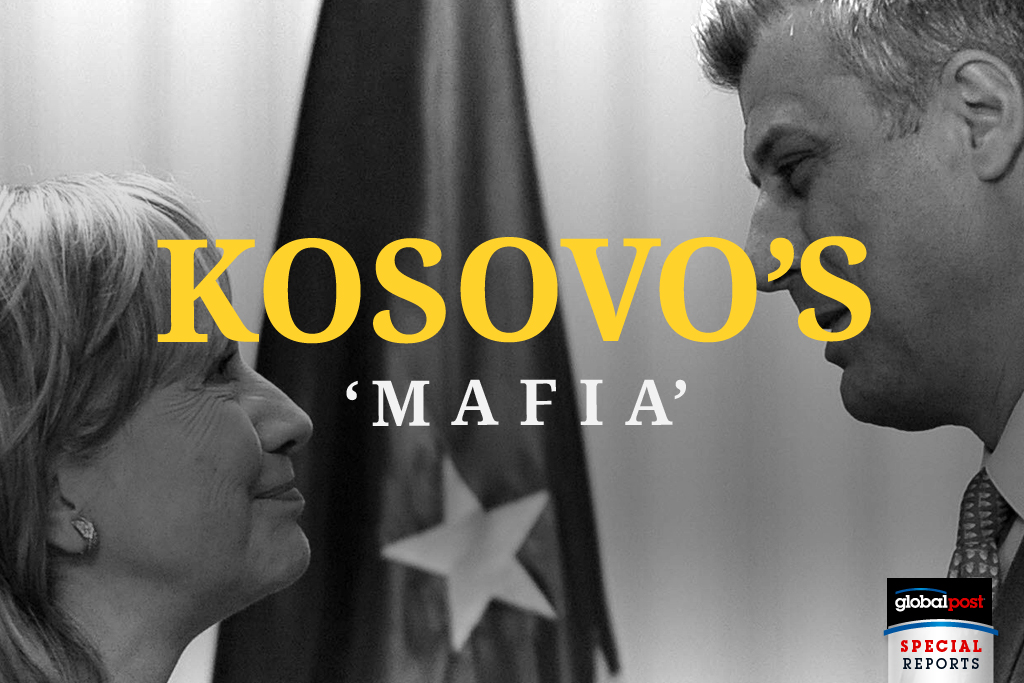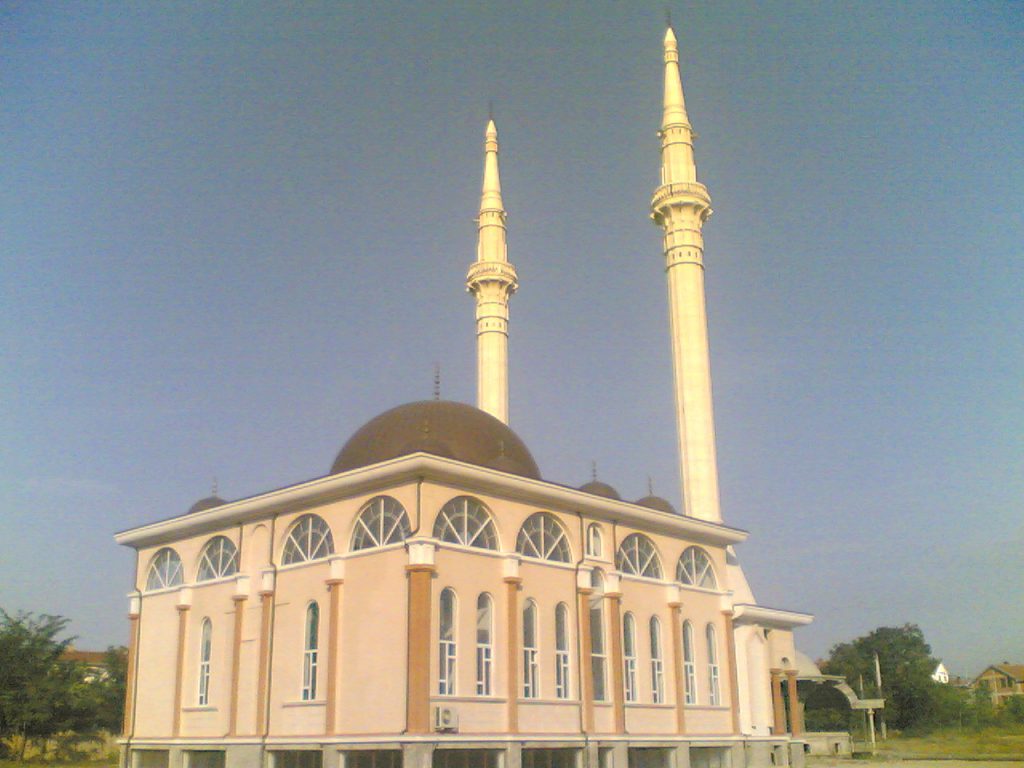
Views: 798
The first thing you hear is the slow-moving clatter of a wheelchair. Then comes his voice. Fetah Rudi survived an attempted assassination which left him paralysed for life, and has spent more than 17 years suffering the consequences.

In June 1999, Rudi was one of the Kosovo Albanians who was detained and tortured in a Kosovo Liberation Army, KLA prison.
A few months later in December 2000, Rudi – a member of the Democratic League of Kosovo, LDK, which at the time was President Ibrahim Rugova’s party – became a target during the violence that erupted after the war.
Fifty-four-year old Rudi said that it all started at the beginning of June 1999, after the KLA’s headquarters issued an arrest warrant.
“With my hands tied, they beat me for two days inside a toilet that I was sharing with two other people,” he told BIRN from his home in the village of Rud in the Malisheva/Malishevo area.
He was arrested for refusing to provide help to the KLA. But he insists that his only fault was that he belonged to Ibrahim Rugova’s party.
“After being sentenced to three months’ imprisonment, I was sent to a garage in the village of Kasterc. I was kept prisoner there for 16 days and that only ended because NATO entered Kosovo [in June 1999],” he said.
NATO’s intervention ended the war, forced Serbian forces to pull out of Kosovo and led to the demilitarisation of the KLA. But political violence continued amid the rivalry between Rugova’s LDK and the Democratic Party of Kosovo, PDK, which was established by leading figures from the KLA.
There had already been tensions during wartime because the LDK’s military wing, the Kosovo Armed Forces, FARK, which had also fought against Belgrade’s rule, but separately from the KLA.
On December 15, 2000, the day he was shot, Rudi was returning from a meeting of the heads of the LDK party’s branches.
The first post-war local elections in Kosovo had just been held and political tensions were high in the Malisheva/Malishevo municipality because the margin between the LDK and the PDK was very narrow as councillors prepared to vote to choose the head of the local executive.
Rudi said that he was going from the meeting to vote when the attack happened.
“First, a machine gun barrage stopped the car. Then I saw three people inside a red [Vauxhall] Astra who shot in my direction. I even saw their faces. I understood later who two of them were,” he recalled.
But over 17 years afterwards, no one has yet been convicted of attacking him – highlighting how courts in Kosovo have failed to effectively deal with politically-motivated post-war murders and assaults.
“There is no dilemma about who the perpetrators [of the attack] are. It was an extension of the sentence pronounced against me during the war,” Rudi said.

Prey for armed gangs
A report by Amnesty International in 2009 estimated that some 800 murders were committed during a prolonged outbreak of violence against Serbs and other ethnic minorities and LDK party members in the period when Kosovo was under UN administration after Serbian forces withdrew.
The majority of people who were allegedly kidnapped by KLA members and then disappeared during the wider period from 1998 to 2000 were either Serbs or Kosovo Albanians labelled as collaborators with Serbia.
“Members of the Democratic League of Kosovo were also murdered by KLA fighters, who considered the non-violent doctrine of the LDK equal to collaboration [with Serbia],” Jean-Christian Cady, the Head of Justice at the UN Mission in Kosovo, UNMIK, from 2000 to 2004, told BIRN.
Cady said that the establishment of a new judicial system in Kosovo by UNMIK was mostly a failure.
“UNMIK did not succeed in protecting the witnesses. We did not manage to find a country willing to receive the relocated witnesses. To succeed, a guarantee for them is needed and also to use the same techniques that are used for example in Italy for the collaborating criminals [in mafia cases],” Cady explained.
Former UN officials like Cady describe a situation in which post-war Kosovo became prey to uncontrollable armed gangs that committed an increasing number of crimes.
Over the past 17 years, Rudi has gone through hundreds of medical check-ups and treatments – but only twice has he been questioned by international prosecutors.
The first time he was questioned by an UNMIK prosecutor in 2001. In 2011, he was questioned by a prosecutor from the EU’s rule-of-law mission in Kosovo, EULEX.
The attack on Rudi happened less than a month after Xhemail Mustafa, an adviser to LDK chief Rugova, was assassinated. Mustafa was shot in the entrance to the building where he lived in Pristina in November 2000.
“While giving my statement to EULEX, an Italian prosecutor explained to me that forensic expertise has found that one of the bullets that had hit me had come from the same gun that was used to murder Xhemail Mustafa,” Rudi said.
EULEX declined to respond to BIRN’s question about which political assassinations the European mission has prosecuted so far.
“EULEX cannot provide information about an ongoing investigation or investigation pertaining to the Office of the Special Prosecutor,” said a spokesperson.
EULEX prosecutors have not yet transferred any cases related to politically-motivated murders to Kosovo prosecutors.
“Everything is linked not only to friction during wartime but also to the reputation and influence of the LDK after the war. By eliminating some of Rugova’s closest associates, they [former KLA fighters] sought to weaken the LDK and rise to power,” Rudi alleged.

New court, new hope?
As the years passed, Rudi’s hopes of getting justice decreased.
A new court backed by the European Union, operating under Kosovo laws but located in the Netherlands with international judges, was established in 2015 to deal with wartime crimes and political and ethnic murders perpetrated in the period between January 1998 and December 2000.
Clint Williamson was the head of the EU’s Special Investigative Task Force, which was in charge of investigating allegations about these crimes which were initially raised by a Council of Europe report. He said after his probe was complete in 2014 that it had found that certain elements of the KLA had been involved in violence and threats against Kosovo Albanian political opponents.
“These individuals bear responsibility for a campaign of persecution that was directed against the ethnic Serb, Roma, and other minority populations of Kosovo and toward fellow Kosovo Albanians who they labelled either to be collaborators with Serbs or, more commonly, simply to have been political opponents of the KLA leadership,” Williamson told a press conference in Brussels.
The new Hague-based court – the Kosovo Specialist Chambers – is expected to issue its first indictments this year, raising the hopes of victims like Fetah Rudi.
“I have confidence that this court will be different,” Rudi said.
Reopening old wounds
The new investigation into the post-war violence in Kosovo has meant the reopening of old wounds for some people.
Shpetim Hajdaraj, whose father Smajl Hajdaraj was killed in January 2002, expects that the new court will examine his case too, although the mandate of the Specialist Chambers does not extend to the time when the murder was committed.
“There are indications and testimonies that his murder is part of a scenario that was planned in advance, although he was murdered later,” explained Hajdaraj.
Smajl Hajdaraj, an MP with the LDK and a former member of Rugova’s FARK – a rival to the KLA – was murdered 37 days after he gave his oath as a deputy in the post-war Kosovo’s first legislature.
The only allegedly political post-war murder case that the judiciary took further was the killing of Ekrem Rexha, a former senior member of the KLA, known during the war by his alias ‘Drini’. He was murdered in May 2000 in front of his house in Prizren.
Two KLA members stood trial for the killing, but were acquitted (see the prosecution’s final arguments in the trial here). Ekrem Rexha’s brother, Ruzhdi Rexha, insisted that the murder was politically motivated.
“People suspected of the murder of Drini are now part of at least two political parties. I would not link them with just one political party,” Rexha told BIRN.
He also claimed that “evidence was disregarded” and raised suspicions that international officials wanted the case to fade away quietly.
“When the court acquitted the accused, the other prosecutor did not appeal,” he said.

Prioritising stability over justice?
Almost two decades on, the inability of the UN mission in Kosovo to deal with the post-war violence is clear, says former UNMIK official Cady.
“The mission was unable to fight the growing crime rates, the robberies, or to prevent political and ethnic crimes,” he said.
While the UNMIK and EULEX missions did not manage to impose punishment on anyone for the post-war political murders, the killings have become a discordant refrain in Kosovo politics, causing a continuing series of accusations and counter-accusations.
The LDK has alleged that the PDK, alongside the so-called Kosovo Information Service, SHIK, a former service secret organisation which was close to its political rival, the PDK, was behind the murders of its members.
These allegations have been denied by PDK members including the former head of SHIK, Kadri Veseli, who is now the speaker of the Kosovo Assembly.
Jakup Krasniqi, the KLA’s former spokesperson, who has long been one of the most senior figures in the PDK, said that after the war, many people perpetrated crimes in the name of the KLA without having ever been part of it.
“Attributing many post-war murders to the KLA without any verification or verdict is an injustice,” Krasniqi told BIRN.
Krasniqi also described the LDK’s claims as ridiculous, particularly in light of the fact that the party signed a deal with its rivals in the PDK in 2014 to form a coalition government.
“Such accusations are made in an attempt to represent themselves as victims. In 2014, the LDK vested the highest power in the same people it used to accuse of murder – the president and the speaker of the Assembly [Kadri Veseli],” he said.
The former president of the LDK, Fatmir Sejdiu, claimed however that during and after the war, members of the party were targets for revenge due to its political stance, and the crimes were not prosecuted because UNMIK wanted to calm the situation in Kosovo.
“The assassinations of the LDK members were not prosecuted in an attempt to preserve some sort of stability or peace during their mandate,” said Sejdiu.
The Kosovo Special Prosecutor’s Office said it has recently questioned some people about the murders of Xhemail Mustafa and Enver Maloku and the attempted assassination of former President Ibrahim Rugova in 2005, but without any results.
“In their statements, the persons we questioned did not provide any information to enable the initiation of an investigation into any individual,” the Special Prosecutor’s Office told BIRN.
The Special Prosecutor’s Office also said that the new Specialist Chambers in The Hague has not asked to be sent any cases that were being handled by Kosovo prosecutors.
Meanwhile Fetah Rudi is still suffering the consequences of being hit by 14 bullets, and the climate of impunity created in Kosovo by the lack of convictions persists.
Rudi expressed hope that the Specialist Chambers will soon take action to ensure justice for the victims of the post-war political violence.
“As time passes, facts may become blurred, but I have not forgotten anything,” he said.

Originally published on 2018-03-06
Author:
Source: Balkan Transitional Justice
Origins of images: Facebook, Twitter, Wikimedia, Wikipedia, Flickr, Google, Imageinjection & Pinterest.
Read our Disclaimer/Legal Statement!
Donate to Support Us
We would like to ask you to consider a small donation to help our team keep working. We accept no advertising and rely only on you, our readers, to keep us digging the truth on history, global politics and international relations.
[wpedon id=”4696″ align=”left”]








